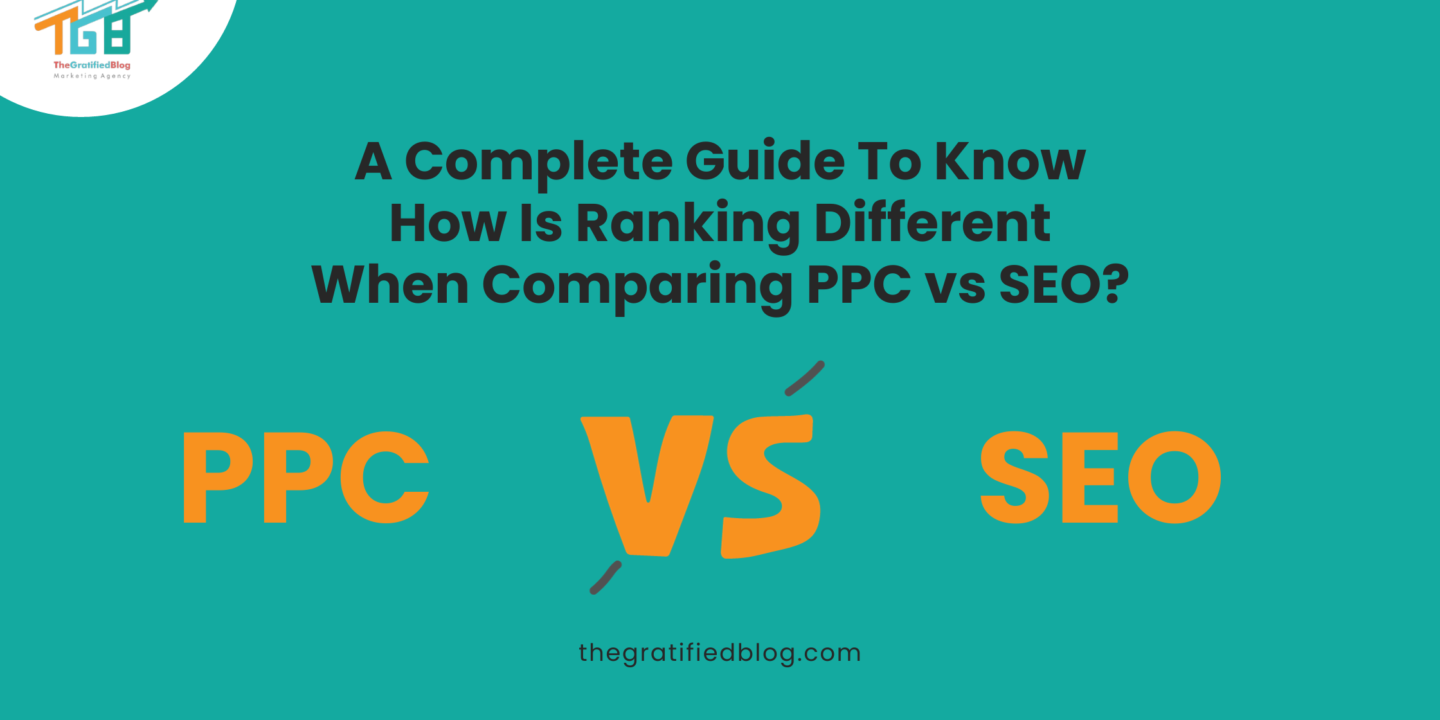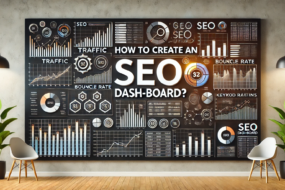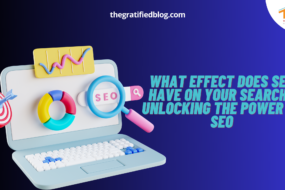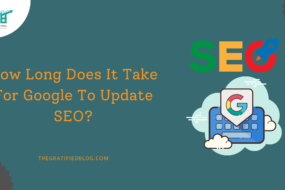
In the fiercely contested arena of digital marketing, achieving a top-ranking position on search engine results pages (SERPs) is the ultimate goal for businesses seeking to gain visibility and attract their target audience. Pay-per-click (PPC) advertising and Search Engine Optimization (SEO) practices are used to reach this coveted status. While both strategies focus on improving a website’s visibility, they operate vastly differently, raising the question: “How is ranking different when comparing PPC vs. SEO?”
Comprehending these disparities is essential for companies aiming to optimize their online presence and attract the right traffic. In this blog, we embark on a journey to explore the significant differences in how rankings are achieved through PPC and SEO, helping you make well-informed choices regarding your digital marketing approach.
Before diving into the differences between PPC and SEO rankings, let’s start by clearly understanding what PPC and SEO entail.
What Is PPC?
PPC is an online advertising approach where companies remit a fee for each instance users click their ad. These ads, often displayed at the top or lower part of search engine results pages (SERPs), are marked as “sponsored” or “ad.” Advertisers bid on specific keywords, and the ad’s position is determined by both the bid and ad quality
What Is SEO?
SEO is optimizing a website’s content, structure, and backlinks to rank organically in search engine results. The goal is to improve a website’s visibility and position on SERPs without paying for individual clicks. SEO involves keyword optimization, content creation, and link building to increase a website’s authority and relevance to search engines.
Benefits Of SEO & PPC
Sustainable Organic Traffic
SEO efforts increase organic rankings, producing consistent, relevant traffic flow over time without incurring ongoing click costs.
Trust And Credibility
organic search results are regarded with greater credibility by users, building trust and improving the long-term reputation of your brand.
Immediate Results
PPC delivers rapid visibility and traffic, making it a practical choice for short-term promotional campaigns or when you need quick results.
Precise Targeting
In PPC, you have the flexibility to focus on particular keywords and demographics, ensuring your ads reach a highly relevant audience, potentially increasing conversion rates.
Now that we’ve understood what PPC and SEO encompass let’s delve into the significant distinctions in how these two strategies impact rankings.
How Is Ranking Different When Comparing PPC Vs SEO?
Cost Structure
One of the most significant differences between PPC and SEO is the cost structure. You pay for each click in PPC, making it a pay-as-you-go model. The cost can vary widely based on keyword competitiveness, industry, and ad quality. Your budget directly influences your position in PPC rankings. You can secure a higher ad placement if you’re willing to spend more.
In contrast, SEO is a long-term investment. While it requires an upfront investment for optimization, the ongoing cost primarily revolves around content creation, maintenance, and monitoring. Rankings are not solely determined by the size of your wallet but by the effectiveness of your optimization endeavors and the caliber of your content.
Position On SERPs
Positioning on the search engine results page is another crucial distinction between PPC and SEO. In PPC, you can choose the position of your ad by bidding on specific keywords and setting your budget. With a sufficiently high budget, your ad can appear at the top of the search results, often called the “top of the fold.” However, the position of your ad can change quickly, as it’s influenced by other advertisers’ bids and ad quality scores.
SEO rankings, on the other hand, are typically determined organically. Your website’s position is earned through various on-page and off-page SEO techniques. This ranking position is more stable and less prone to immediate changes due to the bidding competition. A well-optimized website can secure a high organic position over time, providing a steady stream of traffic without constant budget adjustments.
Visibility Duration
In the realm of PPC, the visibility of your advertisement is intrinsically tied to the size of your budget. As long as your financial resources support your ad campaign, your ad remains visible. However, the moment you cease payments, your ad swiftly vanishes from the search results, resulting in an immediate plummet in visibility.
On the other hand, SEO rankings, once successfully attained, demonstrate a greater degree of sustainability. While occasional fluctuations may occur due to algorithm changes or the SEO efforts of competitors, your website’s presence in organic search results can endure over an extended period, even if you decide to reduce the intensity of your SEO endeavors. This enduring visibility can profoundly impact the long-term sustainability of your online presence.
Credibility And Trust
Many users perceive a credibility gap between paid ads (PPC) and organic search results (SEO). Organic results, they believe, earn their place based on merit and relevance, not monetary investment, making them more trustworthy. As a result, users often place greater trust in organic search results.
Although PPC ads effectively drive traffic, some users favor organic search results. This preference for organic results can lead to higher conversion rates and a more favorable long-term brand reputation.
Traffic Quality
The type of traffic that PPC and SEO bring to your website can vary significantly. In PPC, traffic is quickly delivered, often in larger quantities, but it may sometimes be more precisely targeted. This means you can attract visitors who click on your ad out of curiosity or by accident, resulting in a broader range of user intent.
Conversely, traffic from SEO tends to be more precise and well-qualified. Individuals opting for organic search results typically actively seek the information, product, or service your website offers. While it may take time to build up organic traffic, it has the potential for higher conversion rates due to the inherent relevance of the users’ search queries.
Keyword Selection
In the world of PPC, selecting the right keywords is paramount for the success and placement of your ad. You can concentrate on particular keywords and phrases, tweak your bids, and experiment with various ad variations. It’s important to note that the competitiveness of a keyword can significantly affect the amount you need to bid to attain a favorable ad position.
Meanwhile, SEO relies on keywords, but its approach revolves around creating high-quality content. You optimize your website by incorporating relevant keywords and ensuring your content is informative and well-structured. SEO rankings are influenced by factors such as keyword relevance, content quality, backlinks, and the overall user experience of your website.
Immediate vs. Long-Term Results
PPC boasts the significant advantage of providing rapid, almost instant results. When you launch your ad campaign, your advertisements can appear on search engine results pages within minutes, enabling you to drive traffic to your website swiftly. However, it’s essential to remember that the traffic flow stops abruptly when you pause or conclude your PPC campaign.
In contrast, SEO is a strategic approach that unfolds over the long term. Building your website’s authority and securing higher rankings in organic search results takes time and sustained effort. The results take time, but they offer the benefit of sustainability. Even if you decide to reduce your active SEO optimization efforts, the organic traffic generated through SEO can persist, providing enduring benefits for your online presence.
Competition
PPC and SEO contend with competition, yet how this rivalry unfolds varies significantly. In the realm of PPC, your adversaries are fellow advertisers vying for prized ad placements and visibility. The intensity of this competition directly influences the amount you must bid to secure a prominent position; the more intense the competition, the higher the bid required to claim the top spot.
On the other hand, SEO competition centers on a battle for organic search rankings against other websites and businesses. The competitive landscape in SEO is determined by factors such as content quality, the strength of backlinks, the technical optimization of your website, and the overall authority of your domain. Succeeding in SEO often necessitates adopting a comprehensive, long-term strategy to outperform others in your niche.
Click-Through Rates (CTR)
The Click-Through Rate (CTR) is a vital metric that gauges how frequently users choose to click on your ad or organic search result after encountering it. In the realm of PPC, the CTR of your ad can be influenced by various factors, including the ad copy, the utilization of ad extensions, and the ad’s position on the page. Crafting engaging and relevant ad copy becomes pivotal in enhancing the CTR.
Conversely, in the domain of SEO, the CTR hinges on your organic search result’s position on the page and the quality of the accompanying title and meta description. A higher organic ranking naturally corresponds to an elevated CTR, and deliberate optimization of the title and meta description can further enhance this crucial metric.
Tracking And Analytics
PPC comes equipped with a suite of potent tracking and analytics tools, furnishing real-time insights into the performance of your advertising campaigns. This allows you to meticulously measure crucial metrics like conversions, click-through rates, and return on investment (ROI) with remarkable precision.
On the SEO front, analytics tools do exist, but the immediacy and comprehensiveness of their data sometimes need to catch up to the capabilities of PPC analytics. SEO analytics focus on long-term facets, such as organic traffic patterns, keyword rankings, and other performance indicators.
FAQs
Q1. What is the main difference between PPC and SEO?
A. PPC (Pay-Per-Click) is a paid advertising model where you pay for each click on your ad. At the same time, SEO (Search Engine Optimization) is an organic strategy that involves optimizing your website to enhance its standing in search engine results without direct payment per click.
Q2. Which is more cost-effective, PPC or SEO?
A. The cost-effectiveness of PPC and SEO depends on your specific goals and budget. PPC offers immediate results but can be costly in the long run, while SEO requires a more upfront investment but can provide sustainable traffic without ongoing click costs.
Q3. How do PPC and SEO impact website visibility?
A. PPC ads provide immediate visibility at the pinnacle of search engine results pages (SERPs).SEO efforts focus on achieving high organic rankings over time, providing long-term visibility. PPC visibility is directly tied to your budget, whereas SEO visibility is more stable and less influenced by ad spend.
Conclusion
Exploring the disparities in “How Is Ranking Different When Comparing PPC vs SEO?” shows that both methods have unique advantages and drawbacks. While PPC offers quick results, the expenses can add up over time. Therefore, considering alternative methods might be a prudent choice to ensure your business attains sustainable outcomes in the long run.
If you still have any questions related to the blog, then feel free to leave your questions in the comment section. We’re here to address any inquiries you may have.
Thanks for reading 🙂








No Comments